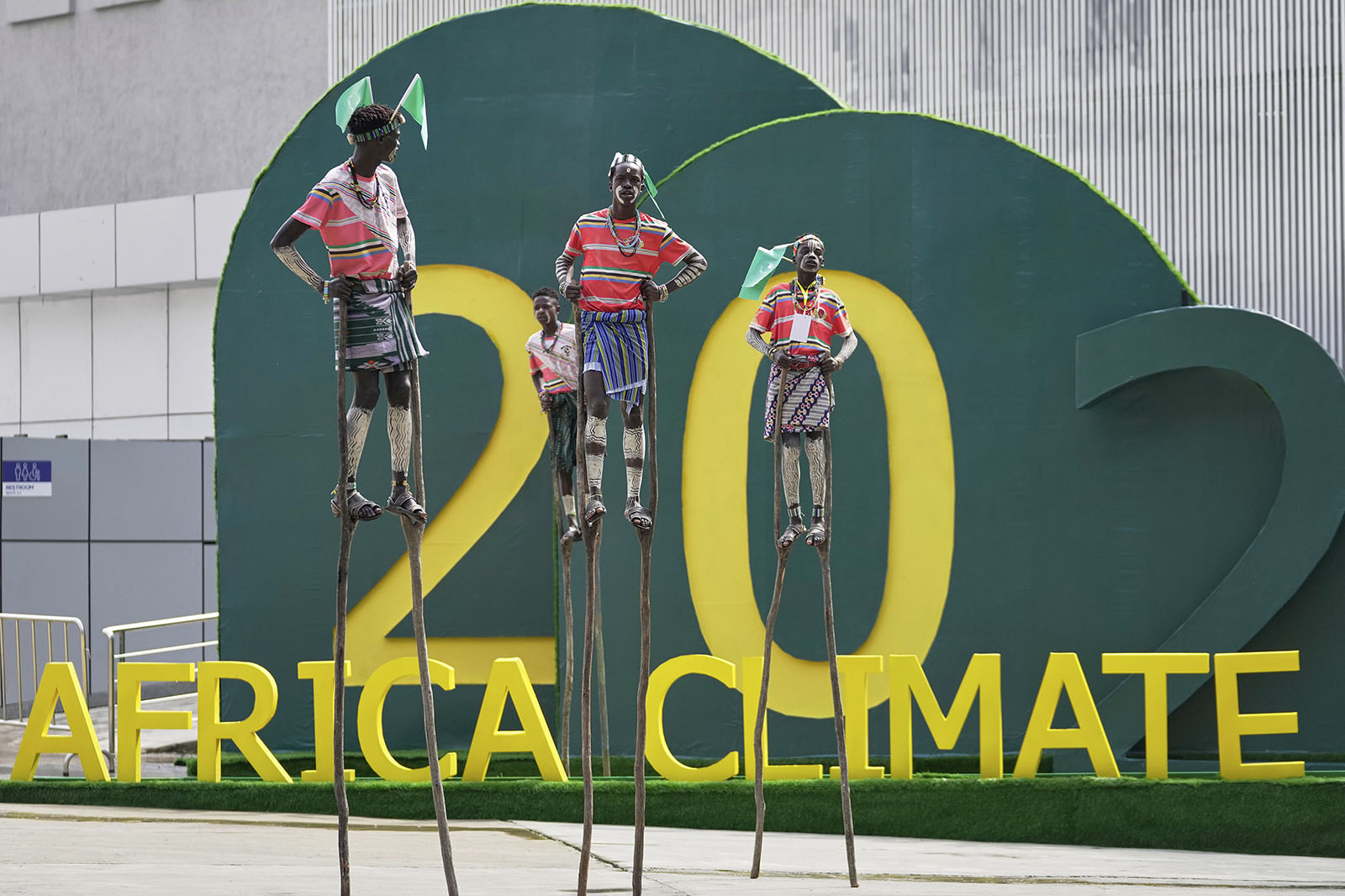
NAIROBI, Kenya (RNS) — Africa must be an architect of its own ecological future, said the continent’s Catholic bishops as they took part in the Second Africa Climate Summit, which ended Wednesday (Sept. 10) in the Ethiopian capital, Addis Ababa.
Forty-five heads of state and government representatives attended the three-day summit hosted by the African Union Commission and the Ethiopian government, joining 25,000 climate activists, business executives and heads of organizations as well as faith leaders. The summit, first held in Nairobi last September, will help shape African leaders’ positions on climate change ahead of the United Nations Climate Change Conference (COP30) in Brazil Nov. 10-21.
“Africa bears disproportionate impacts — droughts, cyclones, floods, desertification — despite contributing least to global emissions,” said the official statement of SECAM, the Symposium of Episcopal Conferences in Africa and Madagascar, released as the summit got underway. “The Catholic Church in Africa calls for bold, fair, and urgent action to ensure that climate solutions are Africa-led, community-rooted, and just.”
Africa accounts for just 2% to 3% of the world’s carbon dioxide emissions from energy and industrial sources, and its per capita carbon output is about a quarter of the global average.
On Sunday, Archbishop Roger Coffi Anoumou of the Diocese of Lokossa, in the west African country of Benin, said the bishops believe Africa cannot only be subject to foreign interests, and must respect the goals of the continents’ inhabitants. “True solutions must integrate social equity, human dignity and creation care — not short-term profit or ‘false solutions,’ such as harmful offsets or extractive projects,” said Anoumou.
The bishops pushed for renewable energy solutions, renewable agricultural approaches and simple technologies that protect biodiversity and respect cultural heritage. They also urge investment in community-driven renewable systems such as solar that create jobs, empower women and youth and reduce poverty while curbing carbon emissions.
The bishop called on wealthy nations to repay their ecological debt. “As Catholic communities in Africa, we ask the leaders of nations and institutions to recognize their moral duty and commit to urgent and ambitious action to protect our common home and the most vulnerable,” said the bishop.
African solutions to the global climate crisis were a common theme at the conference. Abiy Ahmed, the Ethiopian prime minister, opened the gathering with a speech urging participants to start the discussions on the continent’s assets: a young population, large capacity for solar energy paired with “carbon vaults” — forests, wetland and coastlines that can absorb carbon — as well as vast amounts of arable land and rich deposits of minerals critical for green technologies.
“We are not here to negotiate our survival,” said Abiy. “We are here to design the next world’s climate economy. If we make the right choices now, Africa can be the first continent to industrialize without destroying its ecosystems.”
But Ashley Kitisya, programs manager of the Laudato Si’ Movement in Africa, said the bishops’ insistence on “an Africa-driven future” on the environment symbolized a profound shift. “If we keep grounding the conversations in people’s real struggles and in the solutions already working across our continent, then this summit doesn’t have to be another talk shop; it can be a turning point,” Kitisya said.
Kitisya said the bishops had brought into the summit a moral clarity and spiritual conviction that departs from usual diplomacy. “SECAM and so many partners are not just speaking, they are calling for action rooted in justice and dignity,” she said.
Protestant, Orthodox Christian and Muslim leaders also issued a unified declaration, saying they wanted to ensure that Africa’s position at COP30 forwards not only political and economic views, but spiritual and moral ideas deeply rooted in the people’s lives.
Tinashe Gumbo, a program executive for the All-Africa Conference of Churches’ Economic and Ecological Justice effort, said that the summits’ organizers had recognized faith leaders’ participation for the first time. In past years, said Gumbo, the faith groups were forced to squeeze themselves into the process. “This has never happened before. So, we took our time and comprehensively put everything that we thought from our perspective needed to be there,” said Gumbo.
The interfaith declaration calls for peace, for climate justice, debt cancellation as a path to climate justice, climate finance, reduction of carbon emissions and energy justice.
“From the coal regions of South Africa to the oil producing areas of Nigeria and beyond, the shift to clean energy must uphold dignity, create new opportunities, and build resilience,” says the declaration released on Sunday at a pre-summit workshop convened by ACT Alliance, the All-Africa Conference of Churches and other Ethiopian faith-based organizations.
